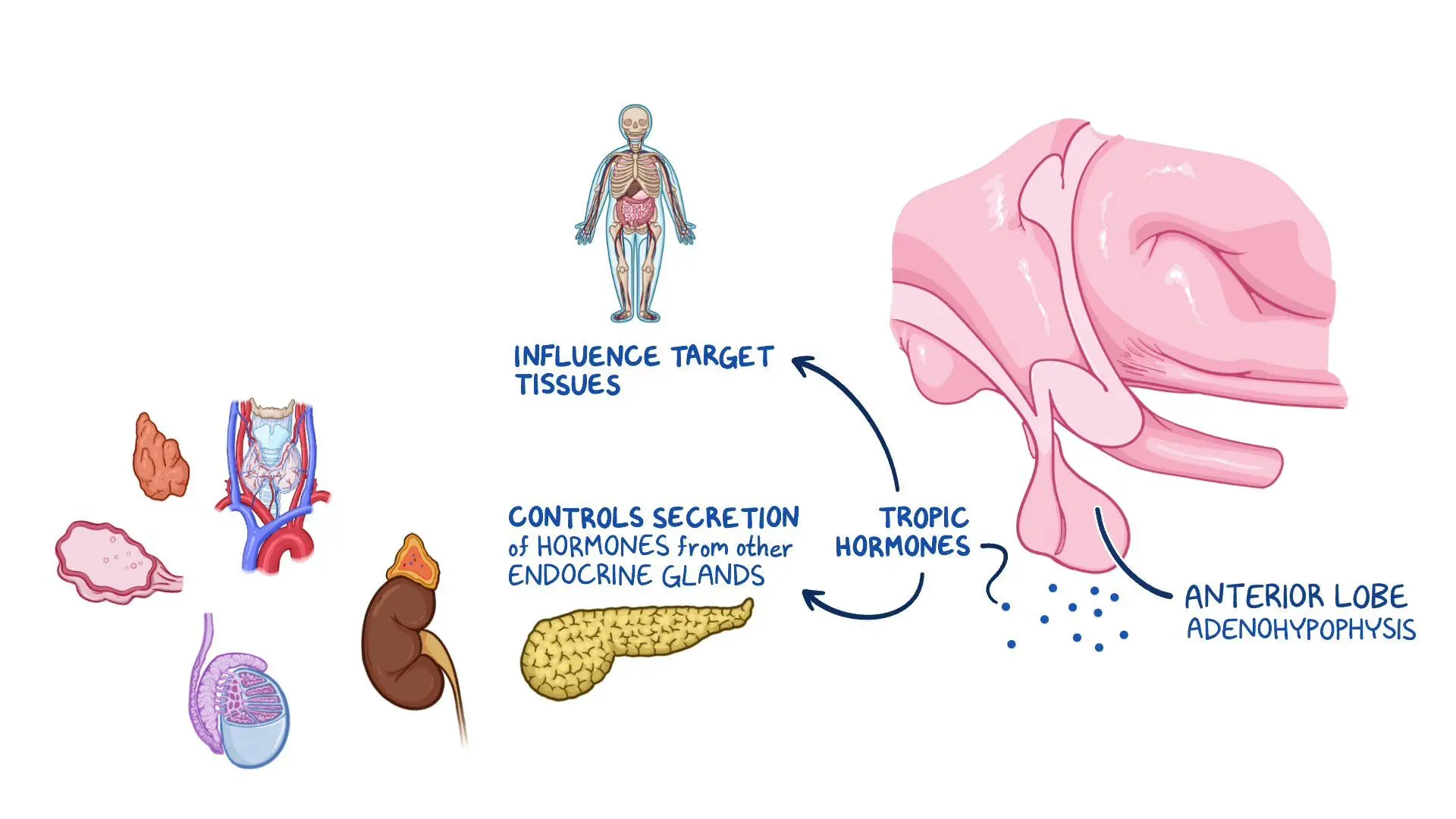Endocrine NCLEX questions
The endocrine system is a sophisticated network of glands that control different organs and blood systems. It's found in the brain, where special glands produce a variety of hormones, leading to profound effects. Nurses must comprehend the endocrine system to offer effective nursing care; thus, endocrine NCLEX questions are resourceful guides for learning purposes.
The endocrine system plays special functions, such as altering the levels of body fluids, bones, and muscles, and much more. If you are preparing for the endocrine NCLEX questions, Naxlex can help you get the grade you deserve. Our highly experienced tutors and quality practice questions guarantee an A or your money back. Join Naxlex for NCLEX success.

Endocrine disorders NCLEX questions with rationale
Considering the crucial functions performed by the endocrine system, it proves to be a significant piece to understand when preparing for the NCLEX questions. Disorders affecting the endocrine system can have serious health consequences requiring expert care.
Nurses must, therefore, be fully competent to understand the different medical health conditions that affect the endocrine system, such as Addison's disease, Cushing's disorder, diabetes insipidus, SIADH, Hyperthyroidism, and Hypothyroidism. Our practice questions provide different endocrine disorders NCLEX questions with rationales, some of which are discussed below.
Addison's disease
The endocrine system produces different effects on the body; one of the fundamental effects is hormones that influence the production of endogenous steroids. The pathway starts with the hypothalamus, which facilitates the secretion of corticotropin-releasing hormones (CRH). This triggers the production of adrenocorticotropic hormone (ACTH). Two popular diseases affecting this pathway are Addison's and Cushing's disease.
The production of endogenous steroids characterizes Addison's disease. You can recall this disorder easily because the treatment of Addison's disease entails adding steroids to the patient. Risk factors for the disease include autoimmune destruction of adrenal or pituitary cells, abnormal cell growth, infection of the hormones, or trauma of the adrenal glands.
Addison's disease produces various signs and symptoms, such as low blood sugar, reduced salt, reduced sexual desire, hair loss, and low blood pressure. Nurses can determine Addison's disease clinically by watching sodium and water loss. Endocrine NCLEX questions are potent resources to help you master Addison's disease.
Cushing's disease
Crushing disease occurs when the body has excessive cortisol hormone for a long time. This might be due to the body producing so much cortisol as a result of drug use, such as glucocorticoids. Common symptoms of the disease include weight gain in the trunk with thin arms and legs, facial weight gain, acne, etc. You can master these concepts with the help of endocrine NCLEX questions.
Diabetes insipidus disease
Diabetes insipidus (DI) may be derived from various factors such as infection, brain tumors, or physical trauma. Patients with DI drain their bodies fast due to urine excretion. Signs and symptoms include dehydration, dry skin, mucosa, and increased thirst. DI patients may also have signs of weight loss due to losing huge amounts of fluids.
Syndrome of inappropriate anti-diuretic hormone (SIADH)
SIADH disease is another disorder tested in the endocrine NCLEX questions. The illness is caused by augmentation of the pituitary gland, which can be due to increased intracranial pressure (ICP) or swelling of the pituitary gland. Symptoms of the disease include increased weight gain and blood pressure.
Hyperthyroidism disease
Hyperthyroidism disease can occur due to different factors such as excess iodine intake through diets, grave disorders, and thyroid replacement overdose. Common symptoms of the disease include agitation, confusion, increased temperatures, heart palpitations, high blood pressure, grape eyes, weight loss, and restlessness.
Hypothyroidism disease
Hypothyroidism is a common disorder that can be caused by different factors such as; low dietary iodine in diets, Hashimoto's disorder, a pituitary tumor, discontinuation of thyroid replacement, or due to surgical removal of the thyroid gland. Notable signs and symptoms of the disease include weight gain, low metabolism, depression, and slowed mental status, among others.
Popular nursing interventions in endocrine NCLEX questions
Different nursing interventions can be used to treat endocrine diseases. For Addison's disease, corticosteroids have proved to be a strong treatment option. Nurses can prescribe steroids such as; prednisone and drocortisone depending on the patient's weight and the severity of the disease.
Excessive steroids characterize Cushing's disease. Thus, the treatment of the disease involves attacking the underlying cause to reduce the level of the steroids. Increased steroids can reduce mineral density in the bones and increase blood sugar, which can lead to hyperglycemia. Treatment of the disease can be surgical, medication, or both.
Treatment of diabetes insipidus depends on the subset of the disease. However, a central treatment option for DI is to manage the patient's blood pressure. Low blood pressure can be dangerous, damage body organs, and cause death. Vasopressors such as vasopressin and desmopressin can be used to increase blood pressure and reduce urine output.
Clinical interventions for SIADH patients aim to treat the underlying cause of the disease. For instance, patients with meningitis should be given antibiotics. The important factor to consider when treating SIADH clients is their acute conditions. Endocrine NCLEX questions offer great content to help you master the SIADH and other endocrine conditions.
Different clinical interventions can be applied to treat patients with Hyperthyroidism disease. A crucial strategy is to eliminate the case of the disease either through reducing the dosage of thyroid replacement therapy or reducing iodine in diets. A significant piece that will help you familiarize yourself with Hyperthyroidism is the endocrine NCLEX questions.
Nursing interventions for hypothyroidism are conducted according to the clients' reduced metabolic rate. Patients should be helped to reduce their caloric load, cholesterol, and saturated fats. They should also be encouraged to rest regularly and avoid depressants such as opioids, benzos, and muscle relaxants.
A final word on endocrine NCLEX questions
The endocrine system is an important part of the body. It plays special functions such as; altering the levels of body fluids, bones and body muscles, and much more. Due to its significance in the human body, nurses must be well-versed in all aspects of the endocrine system. They need to be familiar with different endocrine conditions such as Addison's disease, Cushing's disorder, diabetes insipidus, SIADH, Hyperthyroidism, and Hypothyroidism. Endocrine NCLEX questions are a great resource for candidates preparing for the licensing exam. If you want to prepare successfully, try Naxlex for a guaranteed A in the NCLEX.
Start your journey with us today
Join 1000+ Nursing Students
Powerful learning and clinical tools combined into one platform. The Naxlex Knowledge and Qbanks give you instant and on-the-go nursing knowledge and guidance.




